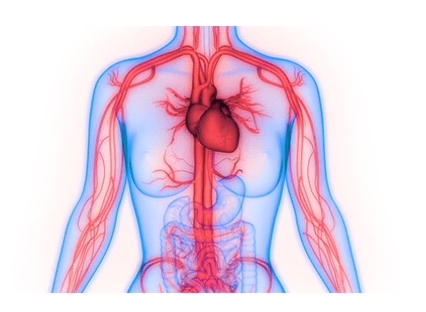
What do we know about our hearts and the effects of vaping.

vaping.
Vaping isn't just a fleeting fad: every day, 3,500 teenagers begin vaping, and one in every 20 Americans now uses e-cigarettes.
It's well-liked for a variety of reasons. To begin with, e-cigarettes do not emit odorous tobacco smoke. In addition, the devices are frequently less expensive than cigarettes and come in a range of shapes and tastes. In fact, when e-cigarettes first hit the market more than a decade ago, they were marketed as a healthier alternative to traditional tobacco products, particularly for those who were attempting to stop smoking. But, in the last 10 years, science has caught up, portraying a bleak image of vaping's purported health advantages, even when compared to cigarettes.
Indeed, some studies argue that they are worse than cigarettes since they pose many of the same health hazards but are easier to sell to teenagers. Let's take a look at four of the most serious health concerns connected with vaping.
Toxic Chemicals in E-Cigarettes are the first issue.
Approximately 7,000 compounds are included in regular cigarettes, many of which are harmful. Researchers are still attempting to figure out exactly what chemicals are in e-cigarettes, but one thing is certain: they contain no less harmful compounds than cigarettes.
In recent months, one chemical in particular has garnered headlines. Vitamin E acetate is a thickening agent commonly found in modified vaping goods and black-market e-liquids containing THC, marijuana's principal psychoactive component.
This chemical is thought to be to blame for the current EVALI outbreak of lung damage and fatalities (E-cigarette or Vaping product use-Associated Lung Injury). As a result, the Centers for Disease Control and Prevention advises against using THC-containing e-cigarette products or buying e-cigarette devices from friends or internet dealers.
Despite the fact that many e-cigarettes do not contain Vitamin E acetate, vaping exposes the body to hundreds of compounds that are known to be harmful or that experts do not completely understand.
Second issue: Aerosol irritates your heart and blood vessels.
Smoking causes heart and lung issues, according to decades of study. While further study into vaping is needed, recent studies have shown that it is likely no better than traditional tobacco products. E-cigarettes produce an aerosol with a greater concentration of ultrafine particles than cigarette smoke.
Exposure to these particles has the potential to aggravate asthma and restrict arteries, resulting in a heart attack.
The nicotine in most e-cigarettes is extremely addictive and damaging to the cardiovascular system. It elevates blood pressure and adrenaline levels, which raises heart rate and increases the risk of a heart attack. Exposure to these particles may aggravate asthma and cause artery constriction. In fact, e-cigarette users had a 42 percent higher risk of heart attack than non-smokers, according to a 2017 study. That's the same amount of danger as diabetes.
Furthermore, vaping has the potential to harm vital blood arteries. The brachial artery (placed in the upper arm) stiffened after a single vaping episode, according to a 2019 research of twenty otherwise healthy smokers. The endothelium, the inner lining of the artery that helps arteries contract and controls inflammation, also ceased operating properly.
Another research included endothelial cells. Even in the absence of nicotine, Stanford researchers found that e-cigarette flavorings harmed lab-grown endothelium cells in 2019. The effects differed according on the taste, with cinnamon and menthol being the biggest offenders.
One point of contention is how these effects relate to those of regular tobacco products. One point of contention is how these effects relate to those of regular tobacco products. While further study is needed, researchers discovered in 2019 that e-cigarette users did not have an increase in blood flow during modest exercise when compared to tobacco smokers. Tobacco smokers experienced a little rise, while nonsmokers had the biggest jump.
Problem Three: Vaping Isn't Good for Your Lungs, Ever
E-cigarette and secondhand vapor include a variety of substances related to significant lung problems:
- Diacetyl is a molecule with a buttery flavor that has been related to lung illness.
- Formaldehyde is a cancer-causing chemical found in construction materials and home goods.
- Acrolein is a herbicide that has been associated to lung damage and COPD, as well as the possibility of lung cancer.
- Benzene is a carcinogenic chemical that is used to make plastics, dyes, and insecticides, among other things.
- Nickel, tin, and lead are examples of heavy metals.
Not surprisingly, researchers have linked e-cigarette use to lung problems. Researchers found in 2019 that vaping increases a person's likelihood of developing asthma and chronic obstructive pulmonary disease (COPD). If that sounds familiar, it's because these conditions are also more common among smokers than non-smokers.
Problem #4: Vaping Doesn't Make Quitting Smoking Easier
Although some surveys claim that vaping makes it simpler to stop smoking, this isn't the case for everyone. E-cigarettes have not been approved by the FDA as a smoking cessation device, and recent study has revealed that persons who sought to quit smoking by switching to vaping ended up smoking both.
That's a lot of unknowns for a habit that's meant to be healthier than smoking conventional cigarettes.
The healthiest strategy when it comes to your heart is to never start smoking or vaping in the first place. If you already smoke or vape, consult with your doctor to discover a solution that works for you.
We are just a call or click away. To learn more, book an appointment online or over the phone with PeachState Advanced Cardiac & Endovascular. We have several locations in Georgia: Newnan, Atlanta, & Griffin.
You Might Also Enjoy...


Feeling Faint

Should I be worried about my numb feet?

Can leg cramps be a sign of something serious?

Meet Dr. Odiete - PACE Cardiovascular Specilaist


